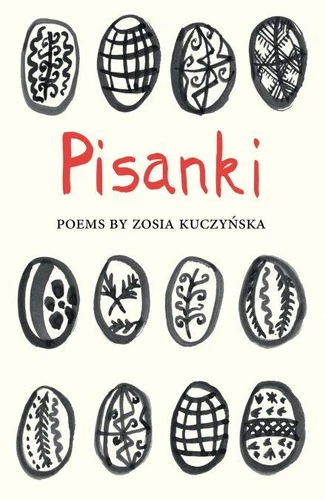Pisanki
Par : , ,Formats :
Disponible dans votre compte client Decitre ou Furet du Nord dès validation de votre commande. Le format ePub est :
- Compatible avec une lecture sur My Vivlio (smartphone, tablette, ordinateur)
- Compatible avec une lecture sur liseuses Vivlio
- Pour les liseuses autres que Vivlio, vous devez utiliser le logiciel Adobe Digital Edition. Non compatible avec la lecture sur les liseuses Kindle, Remarkable et Sony
 , qui est-ce ?
, qui est-ce ?Notre partenaire de plateforme de lecture numérique où vous retrouverez l'ensemble de vos ebooks gratuitement
Pour en savoir plus sur nos ebooks, consultez notre aide en ligne ici
- Nombre de pages36
- FormatePub
- ISBN978-1-910139-71-4
- EAN9781910139714
- Date de parution12/10/2018
- Protection num.pas de protection
- Taille13 Mo
- Infos supplémentairesepub
- ÉditeurThe Emma Press
Résumé
In 1940, a young girl is taken from her home in Eastern Poland to Arkhangelsk, Siberia; in 1942, she boards a train. Seventy years later, that journey is reimagined by her granddaughter, Zosia Kuczynska. As Kuczynska's poems tell the story of her babcia, her maternal grandmother, coming to England, she confronts some of the big questions of art and history: how do you tell another person's story without exploiting it? What's at stake when we try make patterns out of the past, and can we ever leave those patterns behind?
Kuczynska's poems are both richly narrative and sharply attentive to the complexities of home and culture.
They capture human endurance through the redrawing of political maps, from 'the heat of Easter in Tehran' to the powdered eggs and stocking shortages of the London Blitz.
They capture human endurance through the redrawing of political maps, from 'the heat of Easter in Tehran' to the powdered eggs and stocking shortages of the London Blitz.
In 1940, a young girl is taken from her home in Eastern Poland to Arkhangelsk, Siberia; in 1942, she boards a train. Seventy years later, that journey is reimagined by her granddaughter, Zosia Kuczynska. As Kuczynska's poems tell the story of her babcia, her maternal grandmother, coming to England, she confronts some of the big questions of art and history: how do you tell another person's story without exploiting it? What's at stake when we try make patterns out of the past, and can we ever leave those patterns behind?
Kuczynska's poems are both richly narrative and sharply attentive to the complexities of home and culture.
They capture human endurance through the redrawing of political maps, from 'the heat of Easter in Tehran' to the powdered eggs and stocking shortages of the London Blitz.
They capture human endurance through the redrawing of political maps, from 'the heat of Easter in Tehran' to the powdered eggs and stocking shortages of the London Blitz.



